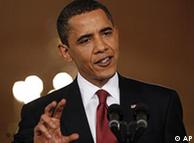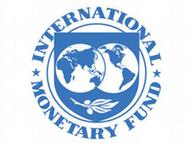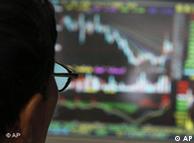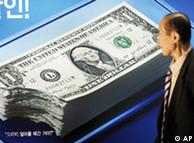Today it is a new global currency reserve... tomorrow it is a new global currency for all... Next year it is a new global (world) government and order...
A UNITED Nations panel of economists has proposed a new global currency reserve that would take over the US dollar-based system used for decades by international banks.
The proposal follows the controversial call by China's central bank governor, Zhou Xiaochuan, to create a new world currency reserve to replace the greenback as part of an overhaul of global finance.
China and many developing countries blame the global crisis on US mishandling of over-extended mortgage loans and investments in them.
With the US also borrowing trillions of dollars, it risks hyperinflation, which would considerably weaken the dollar.
An independently administered reserve currency could operate without conflicts posed by the US dollar and keep commodity prices more stable.
The Sunday Telegraph
-------------------------------------------
US and Europe Reject Chinese Bid for New Global Currency
Is the world too dependent on the dollar?
US and European policymakers are standing behind the dollar as the world's reserve currency. Their comments followed a Chinese bid to see the currency replaced by International Monetary Fund coinage.
An upcoming global economic summit could turn into a showdown over the dollar as the world's reserve currency.
China has publicly thrown its support behind other emerging economies such as Russia which want to shift the world's currency away from the dollar to a new currency run by the International Monetary Fund (IMF).
"The outbreak of the crisis and its spillover to the entire world reflected the inherent vulnerabilities and systemic risks in the existing international monetary system," People's Bank of China Governor Zhou Xiaochuan said in a speech posted on the People's Bank of China's Web site.
Analysts say Zhou's recent comments are the latest sign of the country's growing assertiveness on the international stage. They also show a growing concern China has over the $1.7 trillion (1.3 trillion euros) it holds in US treasury bonds and reserve dollars.
US, Europe want dollar to stay
 Obama doesn't see the need for a global currency (At least not yet)
Obama doesn't see the need for a global currency (At least not yet)
The United States and Europe have dismissed the idea of doing away with the dollar as the international reserve currency. The European Union's top economic official said he thinks the dollar will remain the world's major reserve currency.
EU Commissioner Joaquin Almunia said he doesn't see "major structural changes in the role the dollar plays today as a major reserve currency."
Top US leaders, including President Barack Obama, said they want the dollar to keep its current status.
"I don't believe there is a need for a global currency," US President Barack Obama said at a press conference on Tuesday.
He noted that "the dollar is extraordinarily strong right now," and although the United States was "going through a rough patch" at present, the dollar enjoyed a "great deal of confidence" from investors.
Both US Treasury Secretary Timothy Geithner and Federal Reserve Chairman Ben Bernanke said they would not support a plan to strip the dollar of its reserve status.
Issue likely to be debated at G20 summit
 China would like to see the IMF take a more prominent role
China would like to see the IMF take a more prominent role
Yet the idea is likely to be floated anyway at an upcoming Group of 20 summit planned for London in April. The meeting of industrialized countries will bring together top leaders in hopes of finding a common approach to the global financial crisis.
People's Bank of China Governor Zhou Xiaochuan said he would support moving away from the dollar to an IMF currency basket that would include a mixture of dollars, euros, sterling and yen. The IMF already created an international reserve asset in 1969, but the Special Drawing Rights, as it is called, is currently used only by governments and international institutions.
Russia has said it will bring up the proposal at the upcoming G20 meeting in London. Russia said its has broad support for its proposal among countries such as Brazil, India, China, South Korea and South Africa.
Not likely to happen anytime soon
In the near-term, such a radical departure from the way the global financial system works would be near impossible, economists say, although it could be feasible in the long term.
"The arguments for doing such a thing have economic merit, though the actual implementation of such a system would likely take a Herculean effort and a great deal of consensus building amongst economic powers," Sacha Tihanyi, currency strategist with Scotia Capital told AFP news agency.
"This is an idea, the idea of a global currency, determined by multilateral organizations, which is not new, but it's a serious proposal," John Lipsky, the IMF's first deputy managing director, said at a news conference in response to a question about China's proposal.
China growing more assertive
 China is the biggest US creditor
China is the biggest US creditor
The recent comments by China's top banker follows on comments made by China's Premier earlier this month. They show how concerned the country is about its US assets.
"We have lent huge amounts of money to the United States. Of course we are concerned about the safety of our assets," Chinese Premier Wen Jiabao said two weeks ago.
China holds US Treasury bonds worth $739.6 billion as of January. It is also the world's largest holder of US dollars as a reserve currency, holding more than $1 trillion, according to US government figures.
"China appears to be growing more and more assertive over its rights," currency analyst Andrew Busch of BMO Capital Markets told AFP news agency.
The dollar, which was installed as the reserve currency after World War II, has been regarded as a "safe haven" by international investors up to now.
th/nda/afp/ap/reuters/dp
Related Articles and Sites:

No comments:
Post a Comment